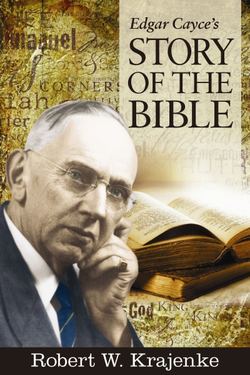Читать книгу Edgar Cayce's Story of the Bible - Robert W. Krajenke - Страница 56
На сайте Литреса книга снята с продажи.
Abraham and the Power of Prayer
ОглавлениеEdgar Cayce often referred to Abraham’s intercession for Lot and the other citizens of Sodom and Gomorrah as demonstration of the power and potential of prayer. (Genesis 18:17-33)
As has been given, however, that which has prevented and does prevent the whole of civilization becoming a turmoil is the attempt of those who have the ideals of the Prince of Peace at heart! And as of old, the prayers of ten may save a city; the prayers of twenty-five may save a nation—as the prayers and activities of one may! But in union there is strength!
Then if that purpose would be kept, it must ever be kept in mind that we are our brother’s keeper.
1598-2
. . . where there were ten, even, many a city, many a nation has been kept from destruction.
3976-8
The prayers of the righteous shall save many. “Where two or three are joined together in one purpose, I am in the midst of same.” The combination, then, of both—for the supplication is putting self in that attunement to the forces as manifest in the growth, the development, of spiritual forces as are manifested in the material world.
136-45
Why then the turmoil in the world today? They have forgotten God! Not that it is merely a karmic condition of a nation of a people; for know ye not that the prayer of one man saved a city? Think thou that the arm of God is shorter today than in the days of yore?
3976-25
. . . even as Abram or Abraham—”If there be fifty, will it not be spared?” “O, if there be ten faithful, will it not be spared?” Then the hope of Europe depends upon you in your own home today! In not the same way, but the same manner as did the life of Lot, or of the other peoples in Sodom and Gomorrah. [World Affairs Reading, January 15, 1932]
3976-8
Though we may look upon, or feel that that which was given to Abram—as he viewed the cities of the plain and pleaded for the saving of same—was an allegorical story, or a beautiful tale to be told children—that it might bring fear into the hearts of those that would have their own way—may it not come into the hearts of those now, today, wilt thou, thine self, make of thine own heart an understanding that thou must answer for thine own brother, for thine own neighbor! And who is thine neighbor? He that lives next door, or he that lives on the other side of the world? He, rather, that is in need of understanding! He who has faltered; he who has fallen even by the way. He is thine neighbor, and thou must answer for him!
3976-8
